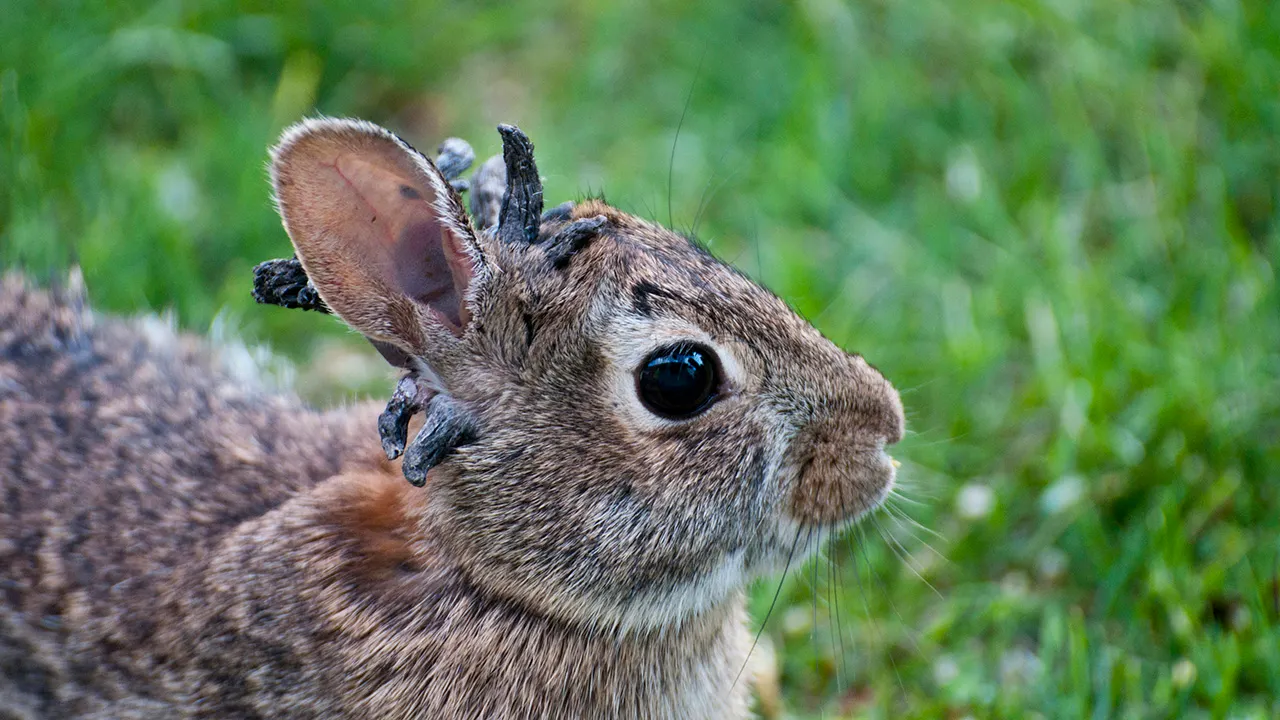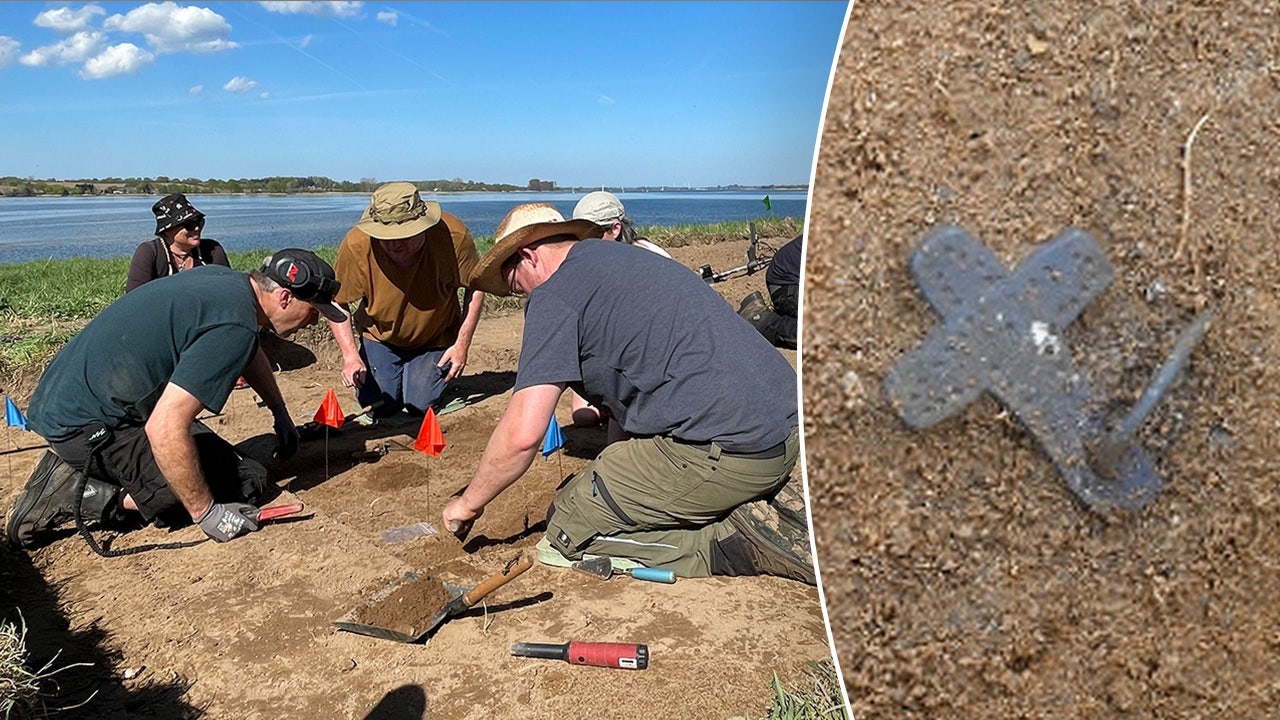NEWYou can now listen to Fox News articles!
Recently, some wild rabbits have been seen in the U.S. with “horn-like” growths spurting from their heads that are caused by a viral infection, according to experts.
“Rabbit papillomas are growths on the skin caused by the cottontail rabbit papillomavirus,” Colorado Parks and Wildlife (CPW) says on its website, as some people in the state have reported the strange sightings.
“It looks like it was black quills or black toothpicks sticking out all around his or her mouth,” Fort Collins, Colorado, resident Susan Mansfield, who saw one of the rabbits, told 9News. “I thought he would die off during the winter, but he didn’t. He came back a second year, and it grew.”
NUCLEAR PLANT ON COASTAL WATERS SHUT DOWN OVER MASSIVE JELLYFISH SWARM
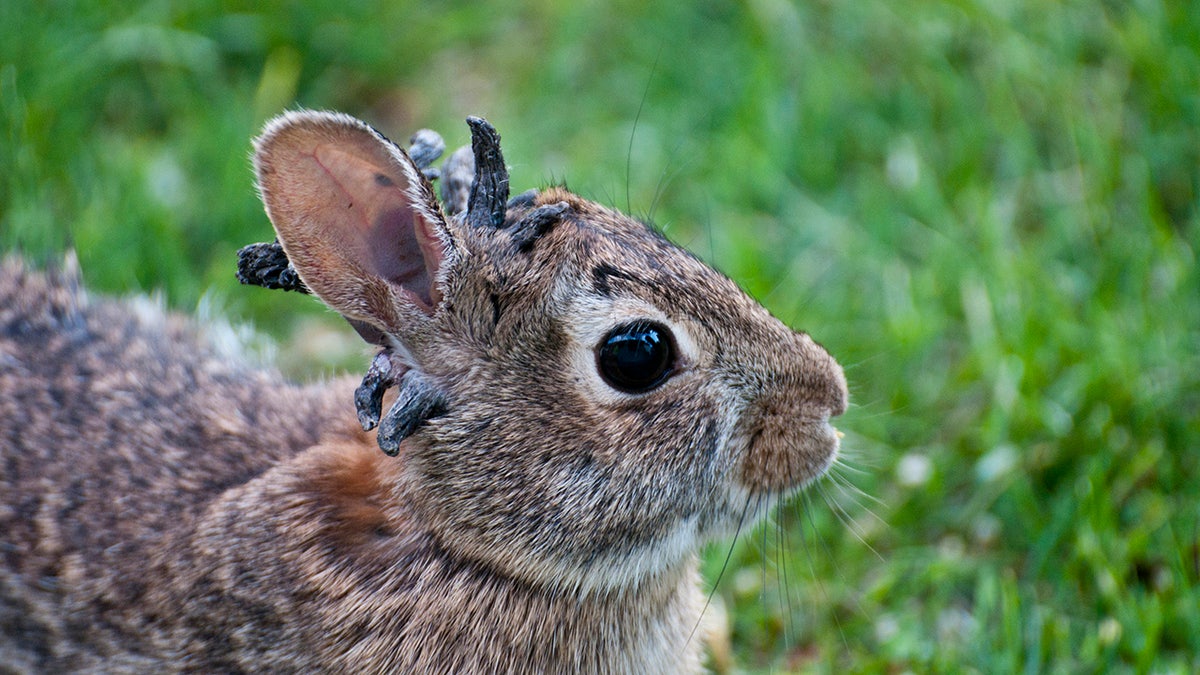
A rabbit infected with the virus. (Education Images/Universal Images Group via Getty Images)
CPW says the infection is typified by “black nodules on the skin, usually the head,” adding, “Growths can sometimes become elongated, taking on a horn‐like appearance.”
The department says the growths don’t harm the rabbits unless they interfere with the animal’s ability to eat and drink.
RARE TICK-BORNE VIRUS CAUSING NEUROLOGICAL SYMPTOMS DIAGNOSED IN NORTHEASTERN STATE
“Most infected cottontails can survive the viral infection, after which the growths will go away,” CPW says. “For this reason, CPW does not recommend euthanizing rabbits with papillomas unless they are interfering with the rabbit’s ability to eat and drink.”
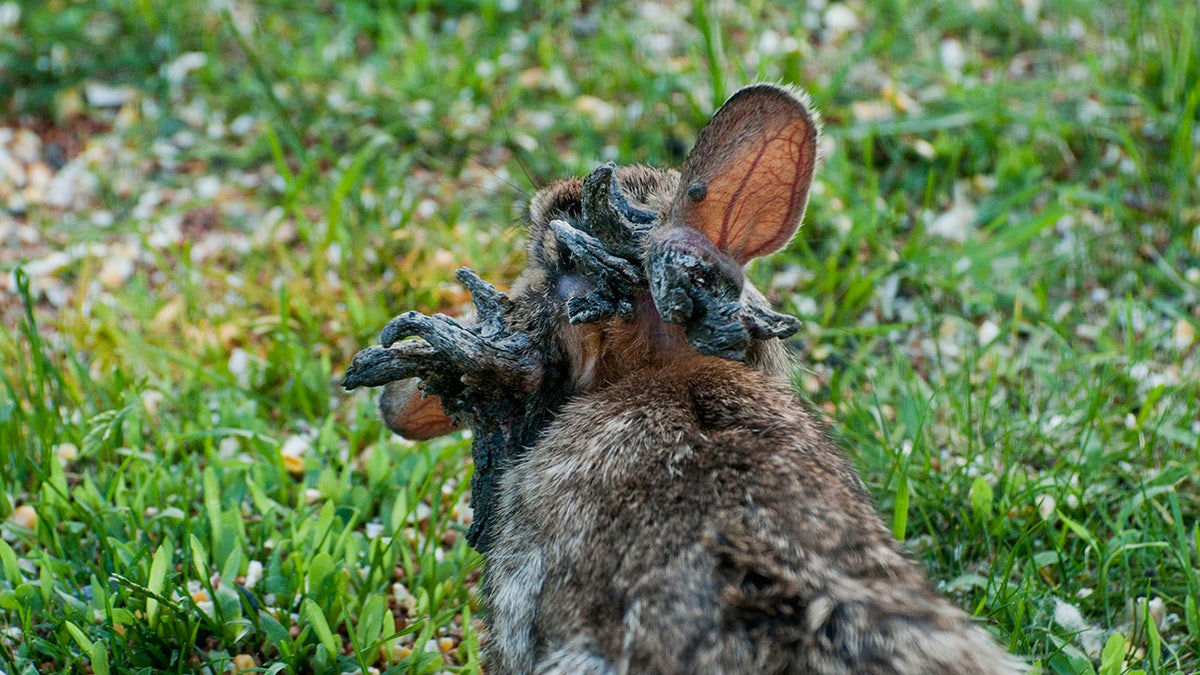
Colorado Parks and Wildlife says the infection is typified by “black nodules on the skin, usually the head,” adding, “Growths can sometimes become elongated, taking on a horn‐like appearance.” (Education Images/Universal Images Group via Getty Images)
The department says the virus is specific to rabbits and can’t be transmitted to other species, but it could infect domestic rabbits, “especially if rabbits are housed outdoors where they may contact wild rabbits or biting insects. In domestic rabbits, the disease is more severe than in wild rabbits and should be treated by a veterinarian.”
CPW also advises people to avoid touching infected rabbits, according to News9.
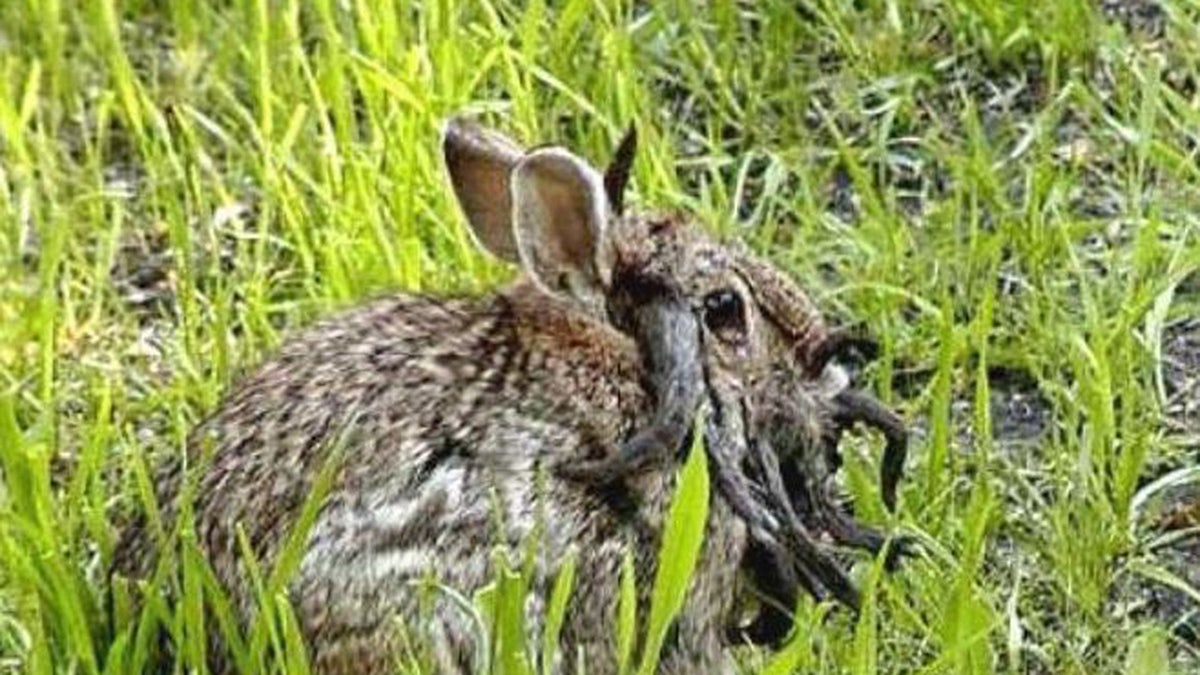
The department says the virus is specific to rabbits and can’t be transmitted to other species, but it could infect domestic rabbits, “especially if rabbits are housed outdoors where they may contact wild rabbits or biting insects. In domestic rabbits, the disease is more severe than in wild rabbits and should be treated by a veterinarian.” (Iowa DNR)
CLICK HERE TO GET THE FOX NEWS APP
There is no known cure for the virus.

